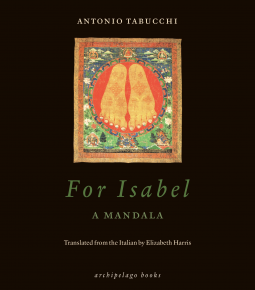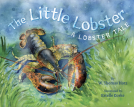
For Isabel: A Mandala
by Antonio Tabucchi
This title was previously available on NetGalley and is now archived.
Send NetGalley books directly to your Kindle or Kindle app
1
To read on a Kindle or Kindle app, please add kindle@netgalley.com as an approved email address to receive files in your Amazon account. Click here for step-by-step instructions.
2
Also find your Kindle email address within your Amazon account, and enter it here.
Pub Date Sep 05 2017 | Archive Date Jul 17 2017
Description
A metaphysical detective story about love and existence from the Italian master, Antonio Tabucchi. When Tadeus sets out to find Isabel, his former love, he soon finds himself on a metaphysical journey across the world, one that calls into question the meaning of time and existence and the power of words.
Isabel disappeared many years ago. Tadeus Slowacki, a Polish writer, her former friend and lover, has come back to Lisbon to learn of her whereabouts. Rumors abound: Isabel died in prison under Salazar's regime, or perhaps wasn't arrested at all. As Tadeus interviews one old acquaintance of hers after the next, a chameleon-like portrait of a young, ideological woman emerges, ultimately bringing Tadeus on a metaphysical journey across the continent. Constructed in the form of a mandala, For Isabel is the spiraling search for an enigma, an investigation into time and existence, the power of words, and the limits of the senses. In this posthumous work Tabucchi creates an ingenious narration, tracing circles around a lost woman and the ultimate inaccessible truth.
Advance Praise
"An essential testament to Tabucchi's talent, a masterwork written with diligence and care... The novel is an epitome of Tabucchi's work, an account of exotic travels and blossoming, abstruse identities, a dream-like and ironic limbo... Literary alchemy." -- Javier Aparicio Maydeu, El Pais
"A masterfully written work made of pauses and delays, realistic details and openings into the fantastic... Tabucchi's art is deployed here in all its force and fascination. It wins us over once again." -- Fabio Gambaro, Le Monde
"Tabucchi enters and expands his fictional universe, revisiting his beloved Lisbon and advancing his reflections on being and time. The novel is a perfect mix of diverse elements, of sudden twists and geographic flights; the plot is crafted with exquisite mastery, the story both engages and provokes." -- Paolo Mauri, La Repubblica
Available Editions
| EDITION | Other Format |
| ISBN | 9780914671800 |
| PRICE | $16.00 (USD) |
| PAGES | 144 |
Average rating from 9 members
Featured Reviews
 Educator 211653
Educator 211653
Thank you Net Galley. Another wonderful story from Antonio Tabucchi. The title captures the nature of the story well. The search is not just for Isabel but for self. Beautiful and lyrical, this is a book to read again. Superb.
 Reviewer 238609
Reviewer 238609
This book takes place in Lisbon. It is not just a search for Isabel, but a search for oneself as well. I loved the concept
of a Mandala and found it interesting. I would read this book again.
Who is Isabel, where is she, what happened to her so many years ago in a Lisbon that was still under the iron fist of the dictatorship? And furthermore, who is this mysterious man that keeps circling this mandala made of concentric figures in order to get closer to her and unravel the past?
When the book came up for grabs on Netgalley I jumped for the opportunity because, as a Portuguese born in Lisbon, I always like to know how other people perceive my country, my city and my history. Of course, Antonio Tabucchi is no stranger to either of these things, and often uses them as the background of his books, but being this my first read by this author I was curious all the same.
Funny enough, this was his last book, and in it the author duels on things like mortality, the closeness to the ones that have left, the search for the things left unsettled in our past.
I really liked it, and even tough it is prose, it feels like a poem, and it mixes a real story with some mysticism. Not for those who live their lives surrounded only by hard facts, recommended to all the dreamers.
Readers who liked this book also liked:
Carine Laforest;
Children's Fiction
W. Thomas Hotz, illustrated by Estelle Corke
Children's Nonfiction, Outdoors & Nature, Science
Editors of Happy Fox Books
Children's Fiction, Children's Nonfiction, Crafts & Hobbies
Véronique Demers
Children's Fiction


















